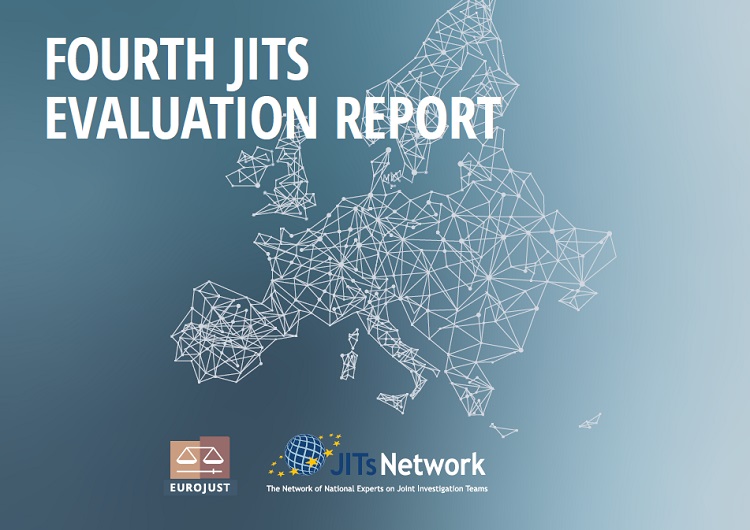The Fourth Joint Investigation Teams (JITs) Evaluation Report brings the main practical findings in terms of lessons learned and best practices identified in JIT operations to JIT practitioners. Published today by the Secretariat of the Network of National Experts on Joint Investigation Teams (JITs Network), the report also focuses on Eurojust’s experience with multilateral JITs, recent developments in JITs and JIT-related case law.
The report is based on 82 evaluations completed by JIT practitioners between November 2019 and November 2022. The evaluations provide valuable first-hand experience and knowledge in the use of the JIT as a judicial cooperation tool with the aim of increasing its use and furthering its development.
The Fourth JIT Evaluation Report describes the best practices identified regarding the setting-up of a JIT, including a recommendation for the relevant authorities from the countries concerned to meet to discuss legal requirements and practical obstacles at the earliest opportunity and to involve Eurojust, which, with its expertise, can play a role in this respect. In particular, the Agency’s global network of Contact Points or Eurojust Liaison Prosecutors can facilitate the first contact when cooperating with non-EU countries.
In the operational phase of a JIT, the report states that it is important to engage with victims throughout the process to reassure them that justice is being served. With respect to JITs on trafficking in human beings and migrant smuggling, visits to the country where the crime took place and to the country where victims originated should be considered to understand the local specificities of the case.
Eurojust’s experience with multilateral JITs is described in a dedicated chapter, which also highlights the specific features and challenges of multilateral cross-border cooperation in the framework of a JIT. To help practitioners, Eurojust has created a checklist that provides an overview of the aspects to be taken into account in the setting-up and operational phases of a multilateral JIT. The checklist is available in all official EU languages.
The report also presents recent developments concerning JITs, including general figures, important novelties, and trends and new practices in the functioning of JITs; for example, JITs in the area of core international crimes and JITs involving the European Public Prosecutor’s Office (EPPO). It also includes an overview of changes related to the financial and logistical support provided to JITs by Eurojust and a list of other tools recently developed to support practitioners with the setting-up and functioning of JITs.
The final chapter of the report presents insights into judicial decisions taken between 2019 and 2022 in some Member States in which JIT-related issues were tackled.

